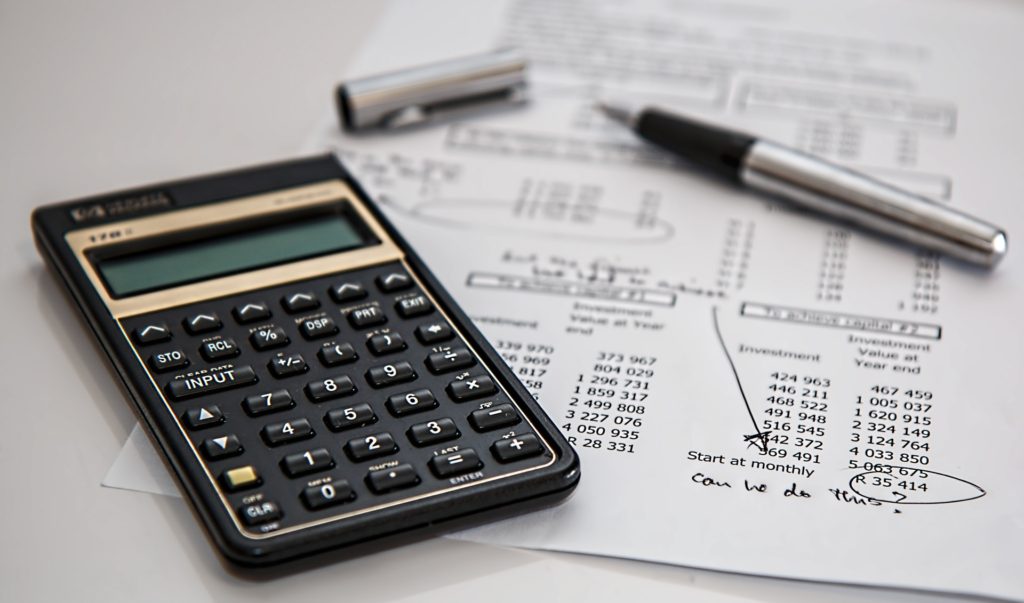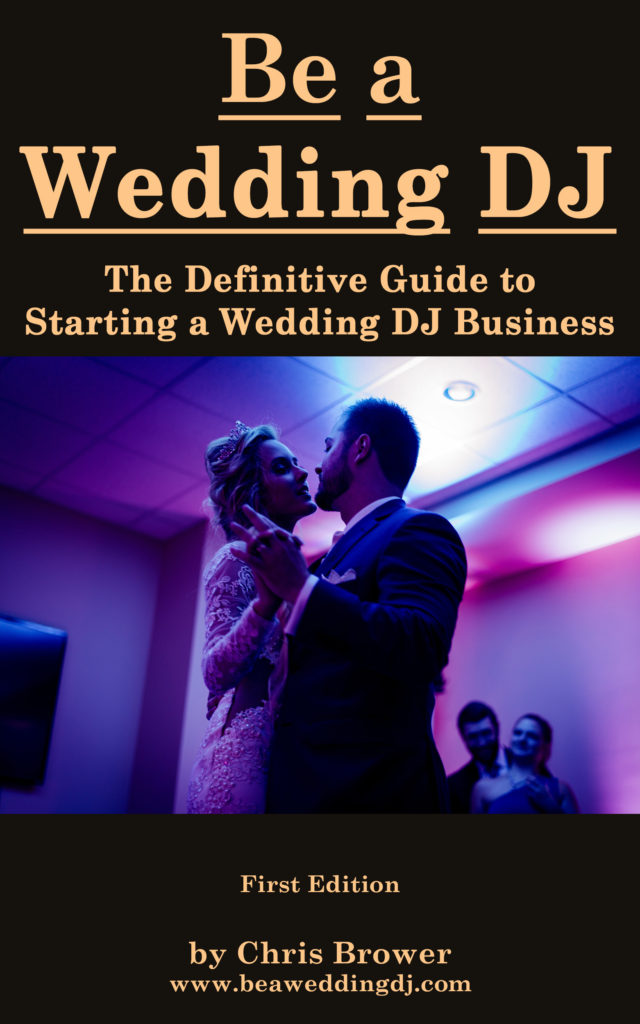How to Reduce Costs For Your Wedding DJ Business
by Chris Brower
Last Updated: December 13, 2021
Starting a wedding DJ business can get expensive. There’s all the equipment you need. The money spent on advertising. The miles you’re putting on your car. Etc.
Thankfully, weddings and the other events you can DJ often pay quite well, so you can soon cover your costs and be making a profit. However, what else can you do to reduce costs?

Avoid Equipment Envy
DJ equipment is cool! Technology is always improving. There are always awesome new gadgets that could give your business the most amazing light show, the clearest sound, and the slickest look.
Plus, talk to any group of DJs, and they’ll inevitably start talking about their equipment. It’s easy to get “equipment envy.” Oh, should I get that too? Do I NEED that to be successful? Am I falling behind by not having this?
Especially when you’re starting out, focus more on what you need and less on what just seems really cool.
I’ve put together a complete DJ equipment guide on this website. Many of the products I link to are on the cheaper side (when it comes to DJ equipment), and are products I’ve used nearly my entire time in business, and they’ve worked great.
Additionally, do you have to have everything I listed on that page? Absolutely not!
Remember, you can always add more equipment later as your wedding DJ business makes more money, and you learn what you need.
Here are some additional things I’ve done over the years to save on equipment costs:
- Bought used speakers and a laptop from a DJ who was upgrading his equipment.
- Bought a used DJ controller.
- Borrowed a speaker from a friend to use in my second setup.
That’s not to say you should do everything as cheaply as possible. I went through two cheap and not good lavalier microphone systems before I shelled out the $300 and got the Shure BLX14/CVL system*, which has been a huge improvement. Money well spent.
Similarly, I upgraded my speakers, and that too was a huge improvement. The other speakers had been working mostly okay, so it wasn’t dire. But it did get to a point where I wanted better sound, and I had the money, so I felt ready to go for it. And I don’t regret it at all.
Ready for the complete guide to becoming a wedding DJ? Here you go.

Watch Advertising Costs
I wrote a whole article on promotion, so I’d recommend checking that out.
For me, advertising is one of my biggest costs every year. But it also drives business my way, so it more than pays for itself.
Advertising is going to take some experimentation to see what works, but here are some lessons that have been true for me. I want to note that I’ve talked to other DJs who have had the opposite experience, so again, it’s going to take your own experimentation:
- Advertising at the Featured level on the Knot has driven a lot of business my way. Lower levels (that are cheaper) unfortunately have not.
- Advertising on WeddingWire has never driven much business my way.
- Paid Google ads have not driven much business my way.
Again, get a group of DJs together, and many of them have had a totally different experience.
For example, some wedding DJs have great luck building up business through free promotion and don’t need to rely on paid promotion:
- Word of mouth.
- Social media (Instagram, Facebook, etc.).
- Networking.
You certainly should try those too. Maybe you too can get the majority of your business through free means, which will greatly reduce your costs. As I’ve said, it’ll likely take some experimentation.
It’s very important to know where your business is coming from. That’s why I always include a “How’d you hear about us?” question in the contact form on my website. That way you can track what’s working and what’s not.
Pay Estimated Taxes
If you don’t pay estimated taxes throughout the year, you run the risk of having to pay a penalty. Thus, paying estimated taxes can reduce your overall costs.
Paying estimated taxes also reduces the sudden “ugh!” that can come from having a huge tax bill at annual tax time.
What Are Estimated Taxes?
For most jobs, where you work for a company, the employer takes out taxes from your paycheck automatically. This makes tax time not too difficult. You’ve most likely already paid the income taxes you owe for that year, and you might even get a refund from the government.
This is not the case when you start your own business. You’re getting tons of DJ payments, the money is rolling in, and you’re loving it . . . and then tax time comes, and suddenly it’s a wake-up call: you have to pay taxes on this money to the federal government, any states you DJ in, and possibly to a city if the city has a local tax. And if you owe a particularly high amount, the government might charge you a penalty for not having paid any taxes on that money so far.
This is why you should pay “estimated taxes.” These are payments you make every quarter to cover your “estimated” taxes for the year. Thus, if I think I may owe $4,000 on taxes to the federal government for that year, I could pay $1,000 each quarter and then there’s no penalty and huge bill at tax time.
If I end up overpaying, the government refunds me that amount. If I underpay, okay, then I just make up the difference at tax time.
You can also pay different amounts each quarter, paying higher or lower depending on how much you think your taxes are going to be. I could also do a similar arrangement for state and local taxes (though likely different amounts, because those tax rates might be lower than the federal rate).
This can be confusing at first—how much should you pay? It might take a couple years of seeing how your business does and how taxes turn out before you get a good sense. There are various calculators you can use and forms you can fill out to figure out your estimated taxes, which are usually based on how well you did the previous year. Here’s a guide that could help you get started.
The first couple years I didn’t pay estimated taxes and then I ended up owing $2,000 or more at tax time, which hurt. The year that really hurt was the year I discovered I owed $7,000 in taxes! Wow, that hurt and was a big oof! Lesson learned.
The following year (and the years since) I paid estimated taxes, which spread out my tax payments, avoided penalties, and eased the burden of a sudden huge bill. Just remember, if you owe a lot of taxes, it means you’re making a lot of revenue. This is a good thing!
Keep Track of Every Mile You Drive
Yes, EVERY mile.
Write down every mile you drive for DJ purposes. This includes driving to/from the weddings/events, as well as meetings with potential clients. Everything.
If you drive a total of one mile round trip, write it down. I do this all the time! It sounds anal, but the government lets you deduct mileage, and this can save you LOTS of money when it comes time to do taxes.
Get in the habit of writing down your odometer on January 1st, so when doing taxes the following year, you can write down your mileage total for the year (beyond just the DJ business driving, which you’ll report separately).
Use Free Programs for Documents/Record-Keeping
There are lots of great services for businesses that can make invoicing, contracts, and record-keeping easy. QuickBooks, HoneyBook, Cloverbook, etc.
These services also tend to cost money.
For many DJs, this is a valuable expense that they're fine with paying.
For others, such as me, I've gotten by just fine using Microsoft Word and Microsoft Excel that were already installed on my personal laptop. And I pay zero to use it every year. (If you don't have it already, you can pay for it once and not have to keep paying for it every year.)
Or you can use Google Docs for free.
Downloadable versions of my documents are available on this website.
In the Be a Wedding DJ eBook, I go in depth on these documents and how to use them.
I also use a good old-fashioned day planner to keep track of important dates.
Are these the slickest, most high-tech solutions for your business? No. But they've worked well for me, and are a way I save considerable money every year.
Use a Credit Card Earning Points/Cash Back
If you're comfortable using a credit card without building up expensive debt, make sure you're using a credit card that earns points/cash back.
For example, for Amazon purchases, I use their Amazon Rewards Visa Signature Card to earn 3% back in Amazon money for each purchase I make there, plus 2% back for purchases at restaurants, gas stations, and drugstores. There is no annual fee. The rewards are even higher for Prime members.
This credit card, along with my other credit cards, means I'm earning points/cash back for pretty much every DJ expense I have, including equipment, advertising, gas, and more. Just a nice little perk.
A lot of careful thought goes into picking and using a credit card. So please be responsible.
Conclusion
Starting a DJ business can be expensive, but there are many things you can do to reduce costs. You're going to hear a lot about all the "amazing" equipment and business tools you "must" buy to be successful. Use your best judgment. You can often find free or lower-cost, just as good, options that can help reduce your costs and thus increase your profit.
Related Articles:
- How to Start a Wedding DJ Business (Quick Guide)
- Complete Wedding DJ Equipment Guide
- How Much Can Wedding DJs Make?
- How to Promote Your Wedding DJ Business
- 9 Lessons I've Learned DJing Weddings
*If you click the product links and make a purchase, we earn a commission. This helps pay for this website and other expenses. This is at no additional cost to you.
